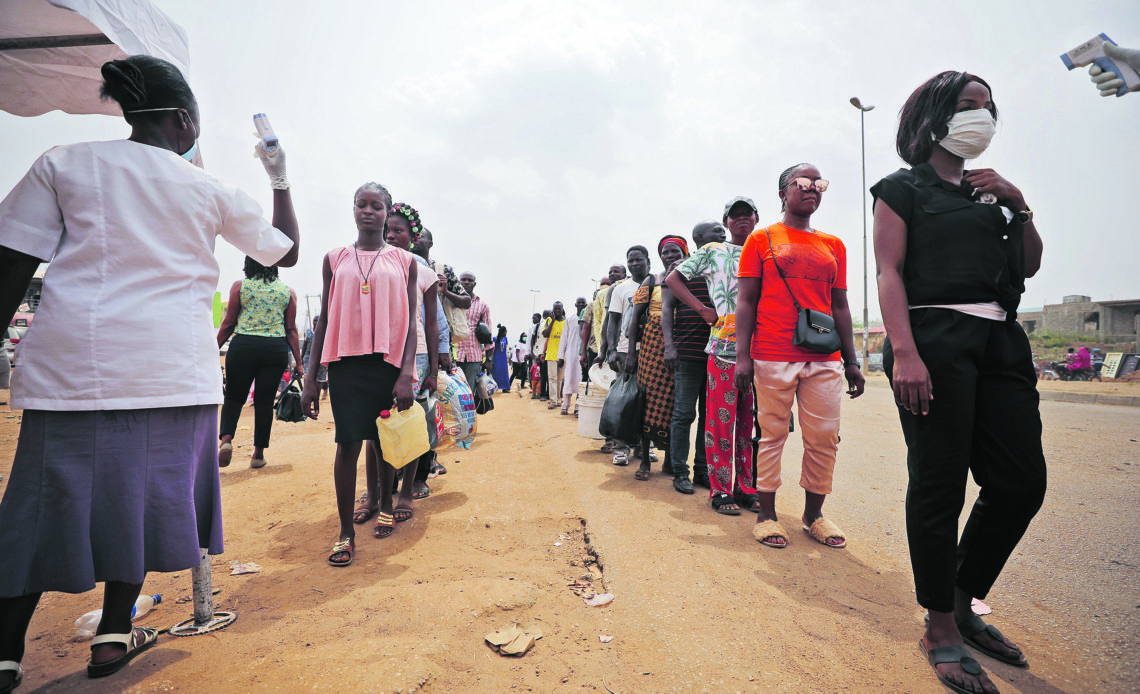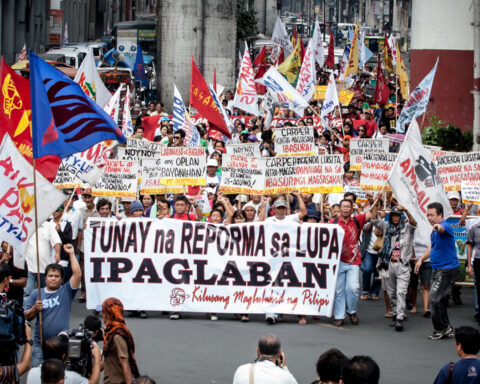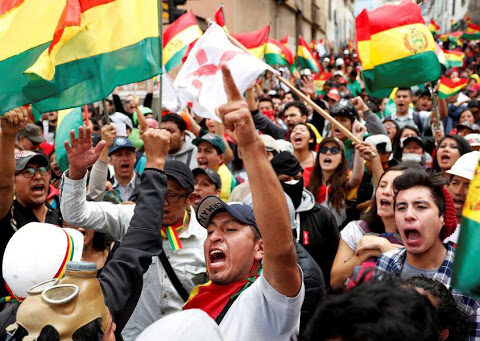In fact, the pandemic has illustrated the failure of those policies and challenged African countries to look for an alternative paradigm. The first section of the paper will briefly look at the economic and social impact of the pandemic. The second section examines how the pandemic has accentuated Africa’s external dependence. The third section gives an overview of the lessons learned from the pandemic while the last section proposes the way forward for Africa in the post-Covid-19 era
Economic and Social Consequences of the Pandemic
The economic and social consequences of the pandemic are staggering. Several sectors of the African economy have collapsed, especially small-scale businesses and the informal sector. Most vulnerable groups experienced more hardship. This led African governments to put together Emergency Plans in order to provide support for vulnerable groups and try to rescue the faltering economy.
According to the World Bank and the IMF, Africa will be in recession this year, for the first time over a quarter of a century. The continent’s gross domestic product is projected to fall by a negative 3.3% (-3.3%) this year. The United Nations Economic Commission for Africa (UNECA) projects export losses of over 100 billion US dollars this year. The United Nations Conference on Trade and Development (UNCTAD) is even more pessimistic, since its forecast indicates a fall in exports of about 500 billion dollars. These losses will not be compensated for by remittances from African expatriates, which are projected to fall by around 25% in 2020, compared to 2019, according to the World Bank
This explains why the African Union has estimated that the continent would need at least 200 billion US dollars to be able to face the economic and social consequences of the pandemic. This was corroborated by UNCTAD, which calculated that the Global South would need 2500 billion dollars.
External Dependence
Most of this amount is expected from external sources. In fact, the pandemic has further exposed the great external dependence of African countries and the utter failure of neoliberal policies implemented over the years at the urging of multilateral and bilateral “partners”, especially the International Monetary Fund (IMF) and the World Bank.
For instance, for most countries, more than half of the resources to finance the Emergency Plans is expected from external bilateral and multilateral sources. For a country, like Senegal, external financing of its Emergency Plan represents nearly 60%. This explains, among others, why
Africa called for the cancellation of its external debt and additional external resources. This call was supported by UNCTAD, which proposed the cancellation of 236 billion US dollars in Africa’s debt.
Yet, Africa found out that it cannot count on its “traditional partners”, who responded to the call for debt cancellation by providing a meager “debt relief” illustrated by a 6-month suspension of debt service. However, Africa’s external debt does not represent a huge amount compared to the staggering amounts announced by developed countries to rescue their economies. At the end of 2019, Africa’s external debt was estimated at 325 billion US dollars.
It represents a tiny fraction (6.5%) of the 5 trillion stimulus package announced by the G 20. Africa’s debt service for 2020 is estimated at 44 billion dollars, or less than 1% (0.88%) of the G20 package.
However, Africa’s external dependence is a paradox in light of the huge capital outflows suffered by the continent each year. In 2015, a Panel put together by the UN Economic Commission for Africa (UNECA) estimated illicit capital outflows to more than 50 billion dollars a year. A just published UNCTAD study puts that figure at 89 billion a year!
Lessons from the Pandemic
So, the great lessons to be learned from the pandemic for African countries are the following A good health system is not only a health issue but also a national security issue Food sovereignty is also an essential national security issue
A performing public sector is a key element of a country’s sovereignty and independence A strong and active State is another key element of sovereignty and independence Africa cannot count on its “traditional partners”: it must count on itself
The pandemic is a symptom of a failed neoliberal paradigm
Conclusion
From the analysis above, it is clear that in order to achieve sustainable development, African countries need a shift in paradigm, away from neoliberal policies. The pandemic has confirmed beyond doubt what was already obvious when the international financial crisis broke out in 2008. The collapse of market fundamental was the beginning of an end to corporate-driven globalization, which is the essence of the neoliberal paradigm.
This is why in Africa, many voices are calling for a paradigm, for reclaiming the Right to Development as adopted by the United Nations in 1986.
In that perspective, Africa needs to take the following steps:
- Reclaim peoples’ sovereignty over natural resources
- Rebuild a public sector, controlling key sectors, (water; energy; telecommunications; etc.) Build an active developmental State as a key-actor in the development process End dependence on the export of raw materials and diversify the economy Build an industrial base in order to transform domestically, create jobs and retain income Protect domestic markets and promote sovereignty in food and other basic needs Accelerate African integration and cooperation, at the regional and continental level Build a strong South-South solidarity agenda
- As the late Professor Samir Amin used to say, Africa should “think for itself” and elaborate its own development model. The pandemic gives African leaders and policymakers a historic opportunity to delink from failed externally-imposed policies and make a paradigm shift.




